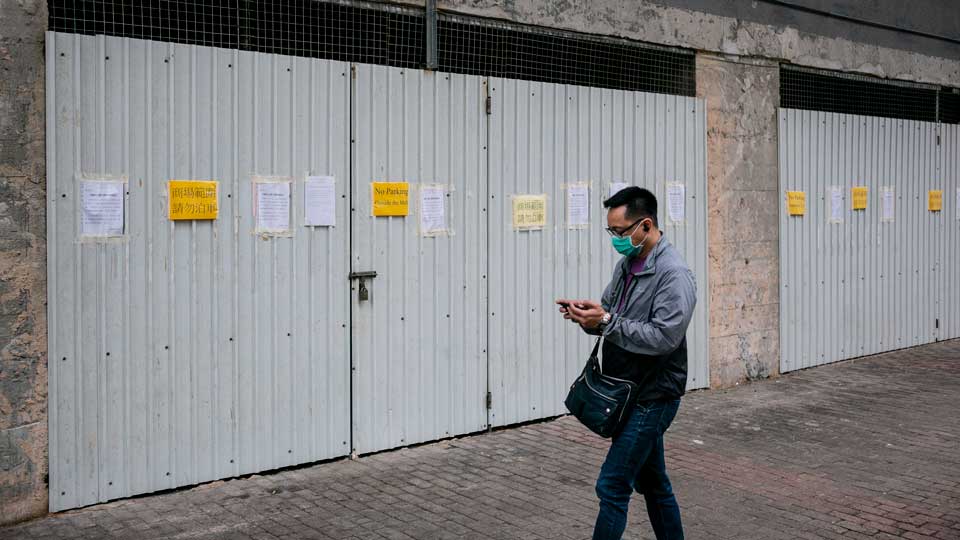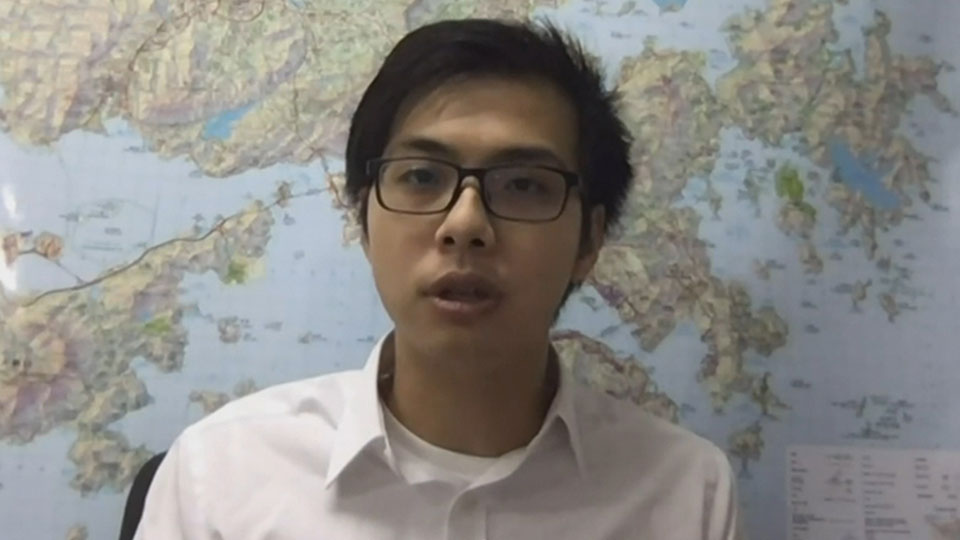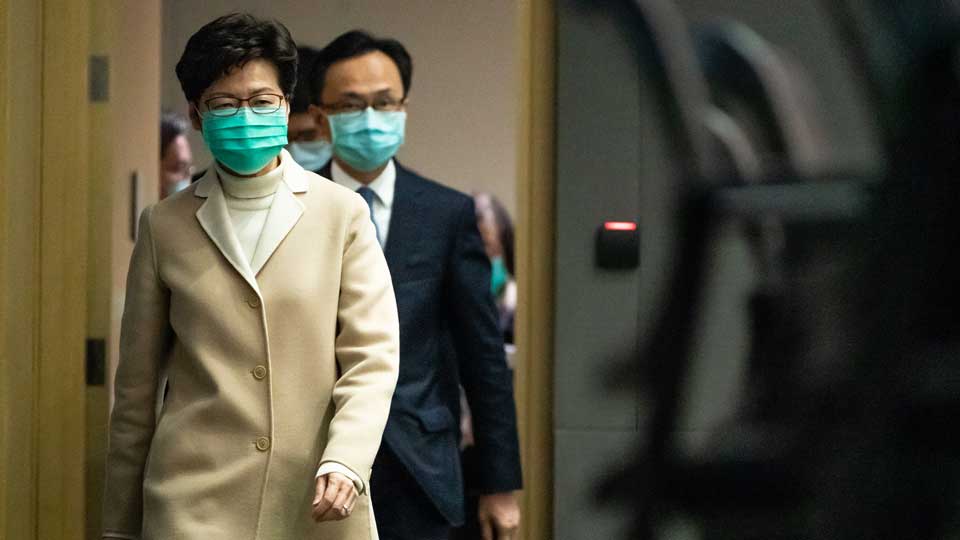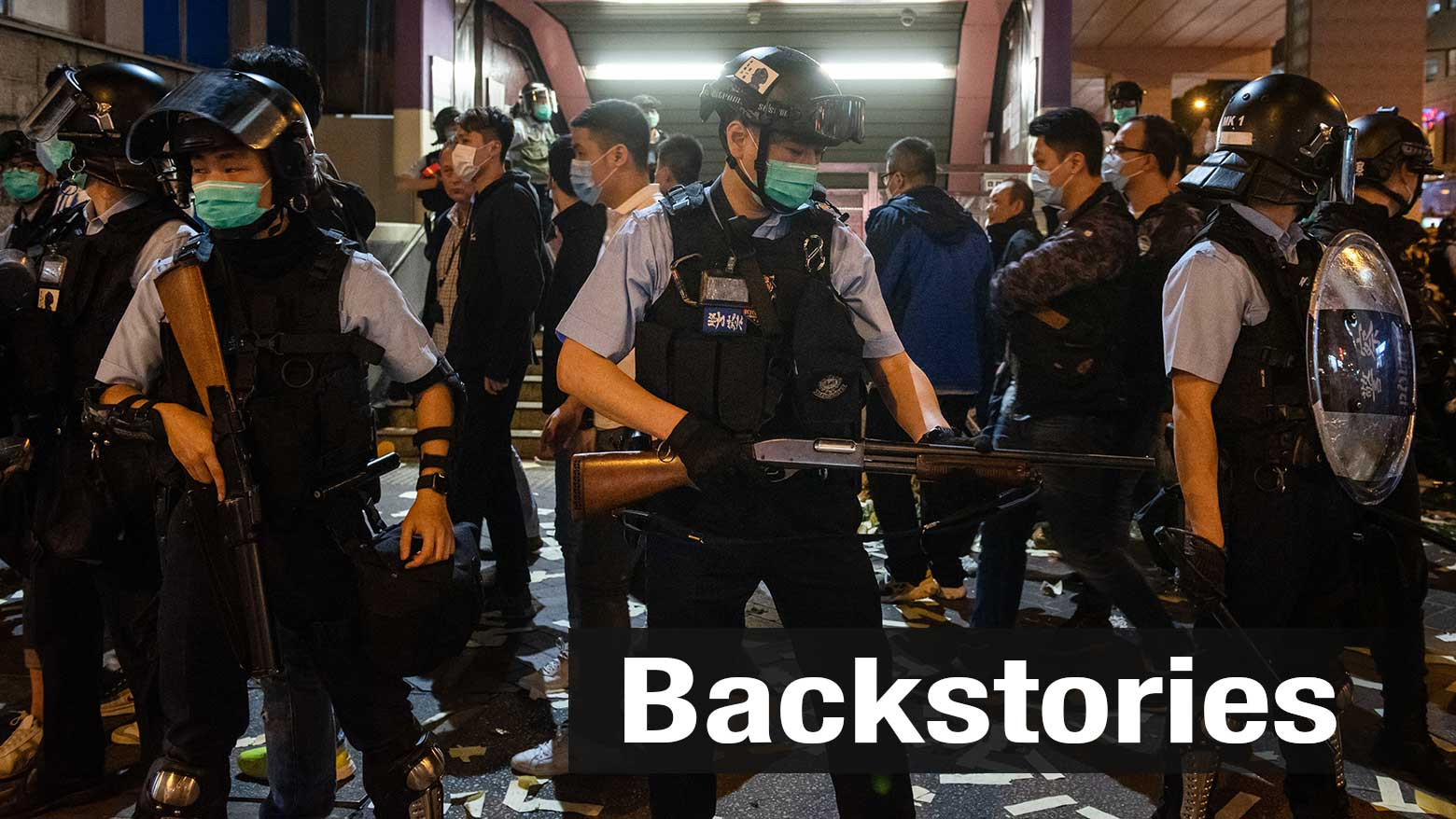Coronavirus brings a kind of calm to Hong Kong

The first infection in Hong Kong was confirmed on January 23rd. More than 100 cases have been confirmed since then, with three fatalities as of March 9th.
Sam Yip, a pro-democracy activist elected to the district council last November, says people's minds are now focused on the outbreak and it's difficult to engage them. He also says it's a bad time to organize a demonstration because a mass public gathering could help the virus spread.

For many in Hong Kong it is reviving memories of the SARS outbreak of 2003 that left 299 people dead. People are staying in their homes as much as possible to avoid the risk of infection.
Anger bubbling under the surface

But no demonstrations doesn't mean no anger. In fact, anti-government feelings may have been exacerbated because of what people see as an inadequate response to the coronavirus. Chief Executive Carrie Lam has only gradually been restricting access to people from mainland China, and still hasn't imposed a total ban. In Taiwan, the government swiftly introduced such a ban, and the infection rate is just a fraction of Hong Kong's. The suspicion among some is that Carrie Lam's slower response was an attempt to curry favor with Beijing.
The Hong Kong Public Opinion Research Institute released the results of a poll late last month that showed the chief executive's approval rating at a record low 9%.
Lam in a difficult position
Lam needs to urgently boost that number. Hong Kong will hold Legislative Council elections this September. Pro-Beijing councilors currently hold the majority and Lam needs to keep it that way.
Last month, the Hong Kong government announced it would provide HK$10,000, the equivalent of US$1,300, to every permanent resident of the territory aged 18 or older. The government calls it a measure to support an economy that is suffering a downturn because of the new coronavirus. Critics say it is an attempt to buy support in the run-up to the elections.
Councilor Yip has his eye on the election too. He says it isn't easy to run a campaign in this environment, but he believes the anti-government feeling is as strong as it ever was, and the pro-democracy camp is hoping to take the majority. He said his thoughts and aspirations for Hong Kong's democratization haven't changed at all.

